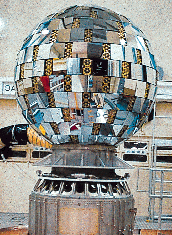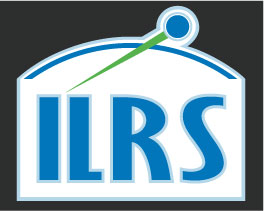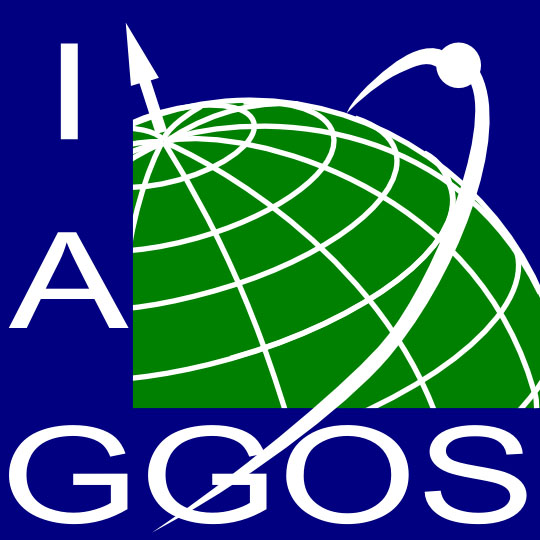
Ajisai
Jump to: Mission Objectives, Mission Instrumentation, Mission Parameters, Additional Information
Mission Photos:

Courtesy of JAXA
Mission Objectives:
Ajisai is Japanese for Hydrangea. Prior to launch, the satellite was called Experimental Geodetic Satellite (EGS). The Ajisai mission has two primary objectives. The first objective, which was short term, was testing of NASDA's (now JAXA) H-I, two-stage, launch vehicle. The second and primary long term objective was to determine the exact positions of the many isolated Japanese Islands. Ajisai can also be used for directional and photometric observations, using the mirrors equipped on the surface of satellite.
Mission Instrumentation:
Ajisai has the following instrumentation onboard:
- Mirrors (318)
- Retroreflector array
Mission Parameters:
| Ajisai Parameters | |
| Sponsor: | JAXA (Japan) |
| Expected Life: | Many decades |
| Primary Application: | Geodesy |
| COSPAR ID: | 8606101 |
| SIC Code: | 1500 |
| Satellite Catalog (NORAD) Number: | 16908 |
| Launch Date: | August 12, 1986 |
| RRA Diameter: | 215 cm |
| RRA Shape: | Circular |
| Reflectors: | 1436 (+ 318 mirrors) |
| Orbit: | Circular |
| Inclination: | 50.0 degrees |
| Eccentricity: | 0.001 |
| Perigee: | 1490 km |
| Period: | 116 minutes |
| Weight: | 685 kg |
Additional Information:
Web sites:
Publications:
- Hattori A., Otsubo T., (2019). Time-varying solar radiation pressure on Ajisai in comparison with LAGEOS satellites, Adv. Space. Res. 63, 63-72, doi: https://dx.doi.org/10.1016/j.asr.2018.08.010
- Jiang Hu, Feng Chugang, "Discussion over Orbit Determination of Satellite Ajisai", Proc. of the 10th International Workshop on Laser Ranging Instrumentation, Shanghai Observatory, Chinese Academy of Sciences, Shanghai, China, November 11-15, p. 600, 1996.
- Kazmierski K., Zajdel R., Sośnica K. (2020). "Evolution of orbit and clock quality for real-time multi-GNSS solutions", GPS Solutions, 24(111). DOI: 10.1007/s10291-020-01026-6
- Koshkin N., Shakun L., Burlak N., Korobeynikova E., Strakhova S., Melikyants S., Terpan S., Ryabov, A., (2017). "Ajisai spin-axis precession and rotation-period variations from photometric observations", Adv. Space Res., 60(7), 1389-1399, doi: https://dx.doi.org/10.1016/j.asr.2017.06.045
- Kucharski D., Kirchner G., Otsubo T., et al. (2020). "Quanta Photogrammetry of Experimental Geodetic Satellite for remote detection of micrometeoroid and orbital debris impacts", Acta Astronautica, 174, 24-31, DOI: 10.1016/j.actaastro.2020.04.042
- Kunimori, H., Otsubo, T., May, T., Matsumoto, K., and Suzaki, Y., "Timing Control Precision for Synchronous Laser Ranging to Ajisai at Station of CRL and JHD", Symposium on Western Pacific Satellite Laser Ranging Network, in Proc. of the 9th International Workshop on Laser Ranging Instrumentation, Australian Government Publishing Service, Canberra, p. 825, 1994.
- Kurcharski D., Kirchner G., Otsubo T., Lim H.C., Bennet J., Koidl F., Kim Y.R., Hwang J.Y., (2016). Confirmation of gravitationally induced attitude drift of spinning satellite Ajisai with Graz high repetition rate SLR data, Adv. Space Res., 57(4), 983-990, doi: https://dx.doi.org/0.1016/j.asr.2015.12.010
- Kurchaski D., Kirchner G., Otsubo T., Koidl F., (2010). Spin axis orientation of Ajisai determined from Graz 2 kHz SLR data, Adv. Space Res., 46(3), 251-256, 2010, doi: https://dx.doi.org/10.1016/j.asr.2010.03.029
- Kurchaski D., Kirchner G., Otsubo T., Koidl F., (2009), "22 Years of AJISAI spin period determination from standard SLR and kHz SLR data", Adv. Space Res., 44(5), 621-626, 2009, doi: https://dx.doi.org/ 10.1016/j.asr.2009.05.007
- Otsubo, T., Kunimori, H., and Engelkemier, B., "Ajisai Tracking Campaign SLR Japan '94 Results", Symposium on Western Pacific Satellite Laser Ranging Network, in Proc. of the 9th International Workshop on Laser Ranging Instrumentation, Australian Government Publishing Service, Canberra, p. 779, 1994.
- Otsubo, T., Amagai, J., and Kunimori, H., "Dependence of Ajisai's Center-of-Mass Correction on Laser Ranging System", Proc. of the 10th International Workshop on Laser Ranging Instrumentation, Shanghai Observatory, Chinese Academy of Sciences, Shanghai, China, November 11-15, p. 223, 1996.
- Otsubo, T., Amagai, J., and Kunimori, H., "Measuring Ajisai's Spin Motion", Proc. of the 11th International Workshop on Laser Ranging, Deggendorf, Germany, September 21-25, p. 674, 1998.
- Otsubo, T., and Endo, T., "Quick Bias Report for Lageos and Ajisai Data", Proc. of the 11th International Workshop on Laser Ranging, Deggendorf, Germany, September 21-25, p. 650, 1998.
- Otsubo T., Amagai J., Kunimori H., (1999). The center-of-mass correction of the geodetic satellite AJISAI for single-photon laser ranging”, IEEE Trans. on Geoscience and Remote Sensing, 37(4), pp. 2011-2018, doi: https://dx.doi.org/10.1109/36.774712.
- Otsubo T., Amagai J., Kunimori H., Elphick M., (2000). "Spin motion of the AJISAI satellite derived from spectral analysis of laser ranging data", IEEE Trans. On Geoscience and Remote Sensing, 38(3), pp. 1417-1424, doi: https://dx.doi.org/10.1109/36.843036
- Sasaki M., Hashimoto H., (1987). "Launch and Observation Program of the Experimental Geodetic Satellite of Japan", IEEE Trans. Geosci. Rem. Sensing, GE25(5), doi: https://dx.doi.org/10.1109/TGRS.1987.289830
- Sasaki, M., "Japanese Geodetic Satellite 'AJISAI' Launched in August 1986", Proc. of the 6th International Workshop on Laser Ranging Instrumentation, Antibes, France, September 22-26, p. 527, 1986.




